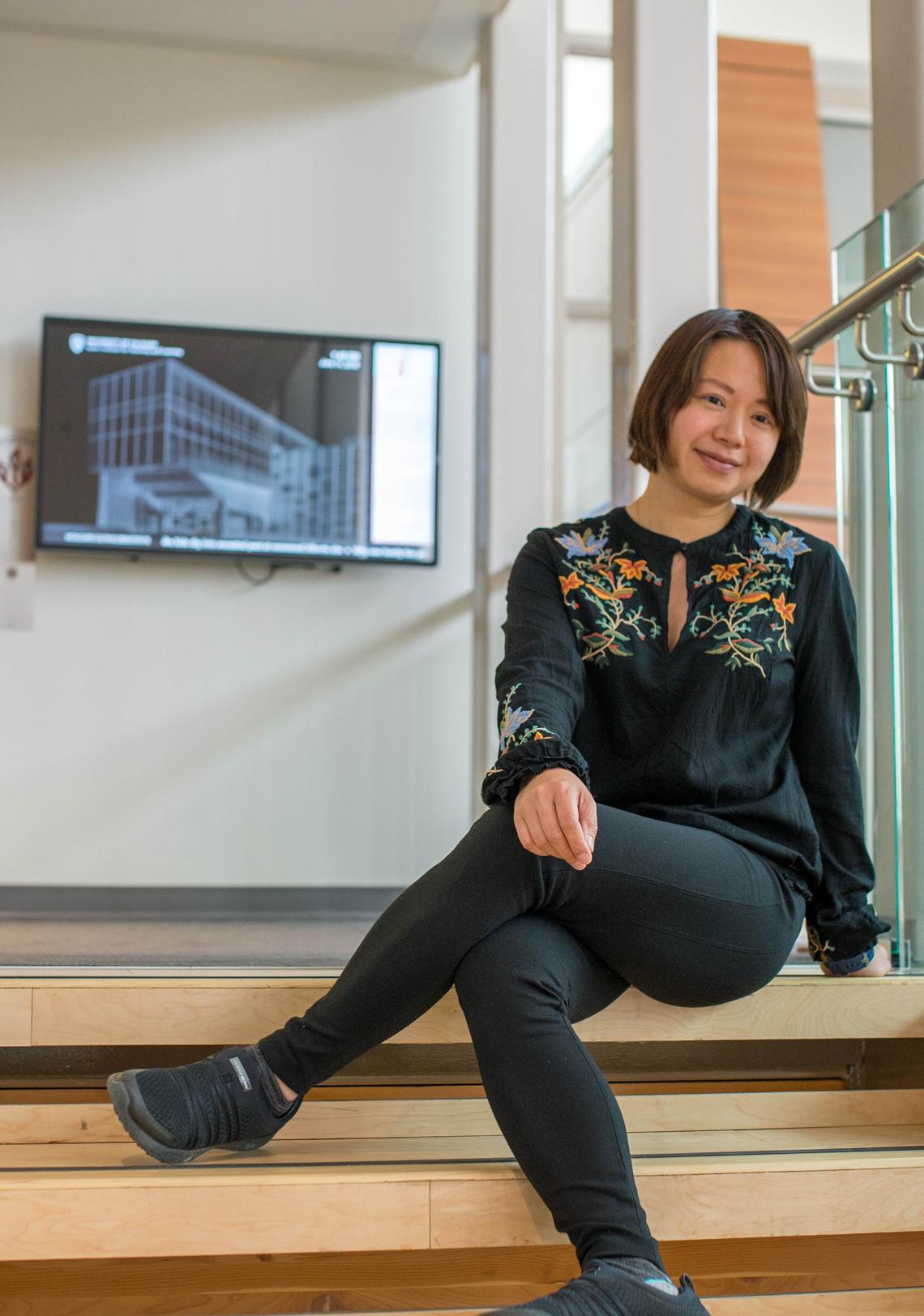June 28, 2018
How stress-busting makes you a better communicator

Presenting to a group can be an anxiety-inducing experience, and even one-on-one communication can be difficult, but both are fundamental aspects of post-secondary education. Can these skills be honed and developed?
Collaborating with Loose Moose Theatre and the Taylor Institute for Teaching and Learning, Dr. Jeff Dunn, PhD, from the Cumming School of Medicine addresses this question with the five-part workshop series called Act Your Research: Improve Your Communication Skills with Training in Improvisation. The workshop’s hour-long sessions incorporate training in interactive improvisation techniques to tackle obstacles such as performance anxiety and performer-audience connection.
The Loose Moose Theatre’s ambassador Dennis Cahill, above, left, has earned an international reputation for developing the theatrical style of improvisation. For Act Your Research, Cahill instructed acting exercises and provided the theory behind those exercises in relation to developing communication skills. Dunn drew upon the exercises and theory to make more specific connections to the academic world.
Improvisation helps us cope with fear
“Most people do not like being stared at, so performing, making presentations, or teaching can be very stressful,” Cahill notes. “To cope, we have defence mechanisms that make us feel safer, but may work against being effective communicators. I would hope that participants leave the course having a better idea of what defensive mechanisms they use to cope with their fears when making presentations, teaching, etc., and some tools to help work without those mechanisms.”
Dunn elaborates further on the workshop series’ applications in an academic setting: “Although I created this program specifically for graduate students to communicate science, we found that it has wide applicability. Your audience might be a lecture hall or your thesis committee, but there are many audiences. It might be your classroom, your lab meeting or your friends at home.”

Lin Yu says Act Your Research has had an impact on her approach to presentations.
Michael Do, Taylor Institute for Teaching and Learning
Lin Yu, a learning and instructional designer at the Taylor Institute for Teaching and Learning, attended all five of the workshop sessions from May 29 to June 12. She attests to the course’s impact on her daily communication strategies.
“There are so many takeaways from this workshop,” she says. “I have learned that improvisation is an expression of good nature. I have learned that improvisation is not about being the funniest person in the room. I have practised making connections with audiences by using voice, eye contact, and stories. I have practised how to analyze status interactions and make adjustments accordingly. I have learned how to handle failure and mistakes. I have learned not to think ahead but to think on my feet — the list seems to be endless!”
Workshop series makes impact on daily practice
Yu can already see the series’ impact on her own day-to-day routine.
“Teaching and facilitating workshops and consulting with faculty and instructor are huge parts of my work,” she explains. “Communication skills are essential for what I do daily. I have applied some improvisation skills in workshops and I could sense the difference.
"I used to concentrate a lot on the content of the workshop and attempted to be perfect in delivery, now I would focus more on the audience and try to build relationship with them, trusting that I have the knowledge and skills to do so and releasing the pressure with self-doubt and worry. My body language indicates that I am more relaxed and confident in asking and answering questions and dealing with unexpected situations in workshops or while working with instructors. That is the beauty of letting go of fear and the pursuit of perfection.”
